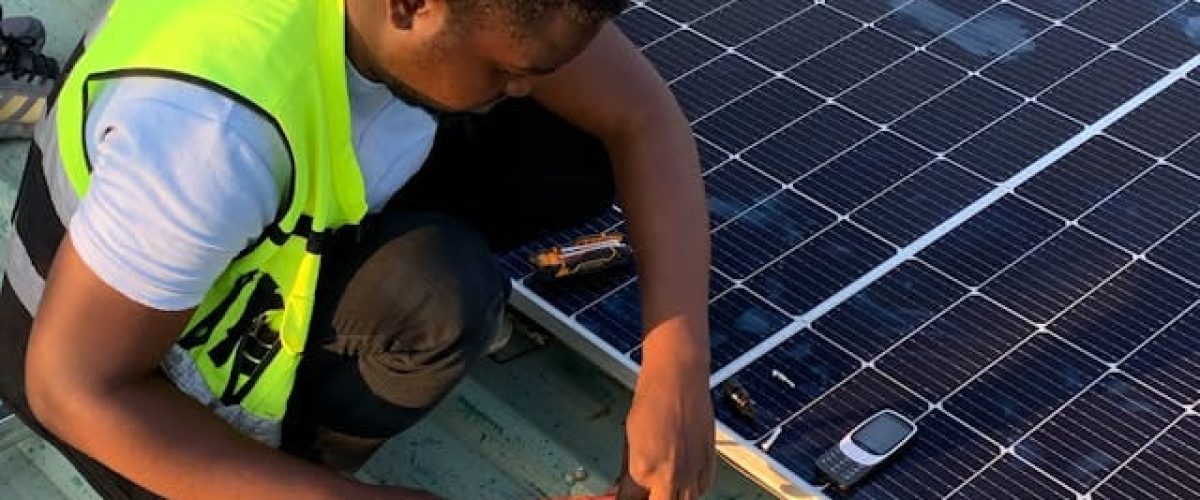Wondering how to choose the best solar company in Kenya? You’re not alone. With hundreds of providers popping up across Nairobi and other towns, picking the right one can feel overwhelming. Whether you’re a homeowner seeking a hybrid solar system or a business needing off-grid power, your choice of solar company in Kenya directly affects performance, support, and long-term savings.

Let’s break down the key things to consider before hiring a solar energy company in Kenya.
1. Check for EPRA Licensing
Why it matters: Licensed companies are vetted by the Energy and Petroleum Regulatory Authority (EPRA) for compliance with safety and installation standards.
What to do:
- Visit the EPRA website and verify that the solar company is listed.
- Ask the company to show their current license.
✅ A licensed solar installer reduces your risk of electrical faults and substandard work.
2. Experience and Track Record in Solar Installations
Why it matters: Companies with a solid history have dealt with different installation environments, technologies, and client needs.
What to do:
- Ask how long they’ve been in business.
- Request to see previous projects or client testimonials.
- Look for reviews on Google, Facebook, or platforms like Trustpilot.
✅ A proven track record shows reliability and consistency.
3. Quality Equipment Used by Solar Companies
Why it matters: Not all solar panels, batteries, or inverters are equal. Substandard components lead to breakdowns and poor energy output.
What to do:
- Ask which brands they use (e.g., Canadian Solar, Jinko, Felicity, Huawei).
- Confirm that the products come with warranties (preferably 10+ years for panels).
✅ Choose a solar company that use Tier 1 solar panels and deep-cycle batteries.
4. Choose companies that use Tier 1 solar panels and deep-cycle batteries.
Why it matters: Even the best system can have issues. You need a solar company that won’t disappear after installation.
What to do:
- Request a written warranty policy.
- Ask what support is included: maintenance, repair, system checkups?
- Look for companies offering long-term service plans.
✅ Good after-sale support = peace of mind.
5. Transparent Pricing and Quotes
Why it matters: Hidden charges, vague costs, and unclear pricing structures are red flags.
What to do:
- Ask for a detailed quote with a breakdown of equipment, labor, transport, and installation costs.
- Compare with 2–3 other providers.
✅ Clarity in pricing shows the company is honest and customer-focused.
6. Responsiveness and Customer Service
Why it matters: Poor communication before installation usually means even worse service after.
What to do:
- Observe how quickly they reply to emails or calls.
- Gauge their willingness to answer your questions.
✅ You want a solar installer that listens to your needs, not one that disappears once paid.
7. Financing Options and Payment Plans
Why it matters: Solar installation in Kenya can cost between KSh 250,000 – 1,000,000+. Flexible plans help you afford quality solutions.
What to do:
- Ask if they offer Pay-As-You-Go (PAYG), leasing, or loan partnerships with banks/SACCOs.
- Confirm the terms and any interest rates.
✅ Financing makes solar energy accessible to more Kenyans.
Trusted Solar Companies in Kenya (2025)
Here are some reputable solar energy solutions providers to consider:
- Davis & Shirtliff – Wide range of residential and commercial systems.
- M-KOPA – Affordable PAYG solar kits.
- Chloride Exide – Experts in batteries and power backup.
- Go Solar Systems – Custom solar energy projects.
- Solargen Technologies – EPRA-certified and experienced in rural installations.
✅ Financing makes solar energy accessible to more Kenyans.
Final Thoughts: Choose Wisely, Save Big
The solar company you choose will affect your home’s energy output, safety, maintenance, and savings for years. Don’t settle for the cheapest offer — invest in quality, reputation, and support.
Ready to take the next step? Reach out to one of the trusted companies above or get a free solar energy consultation on ThoonjoErrands.com.


